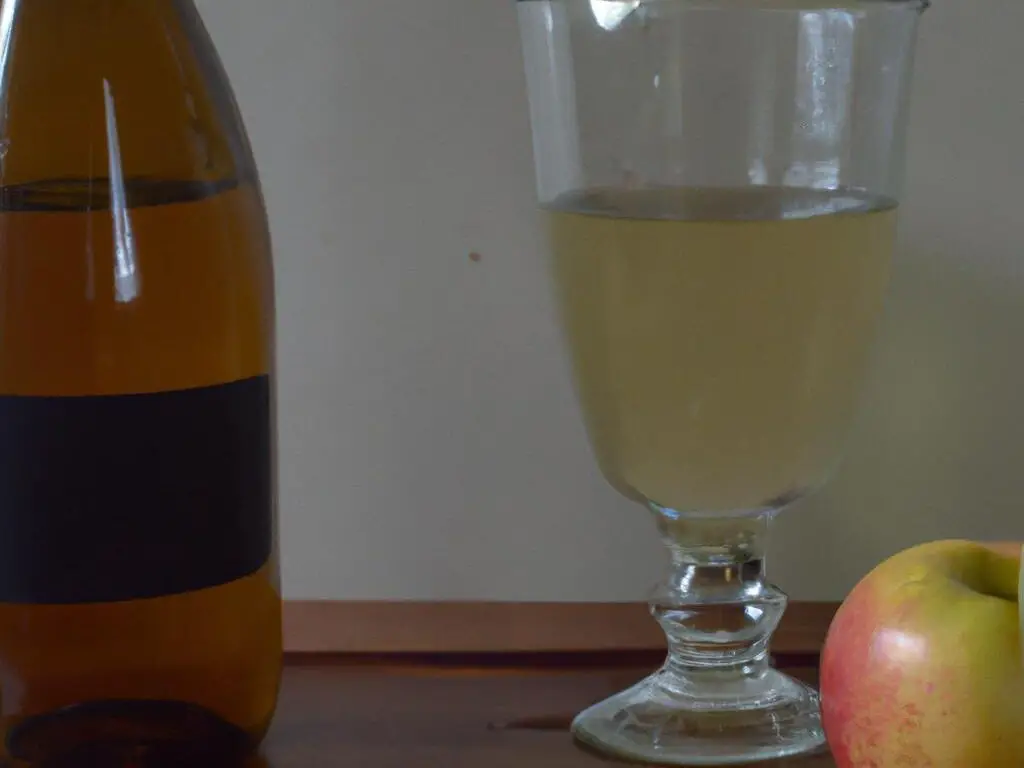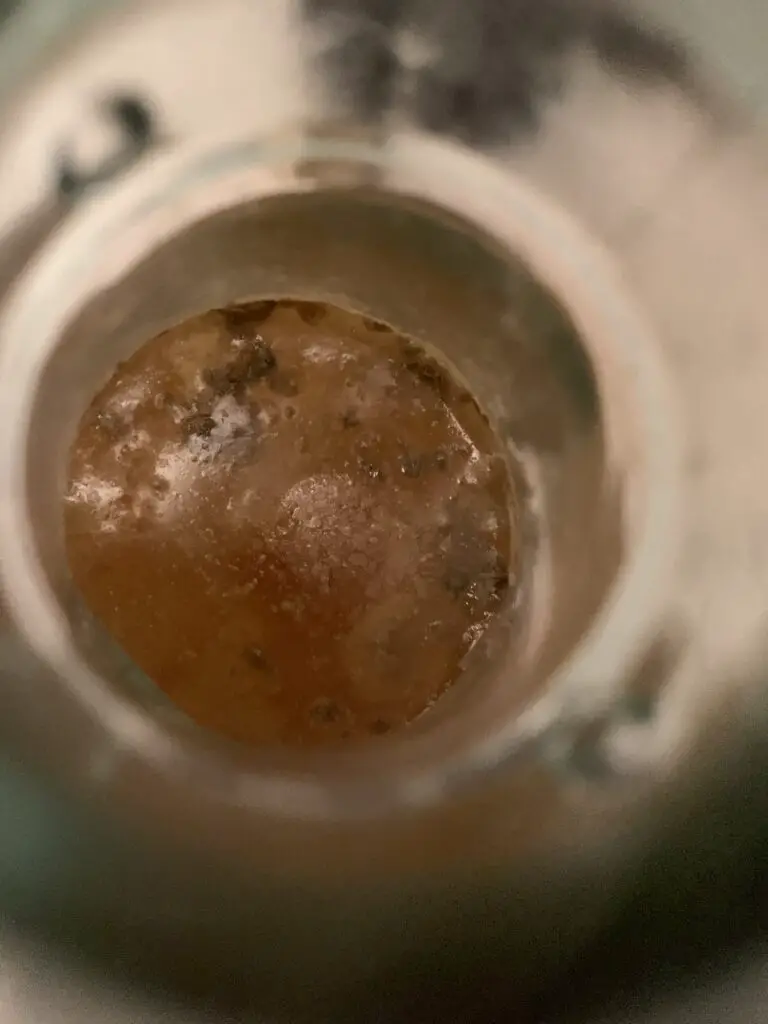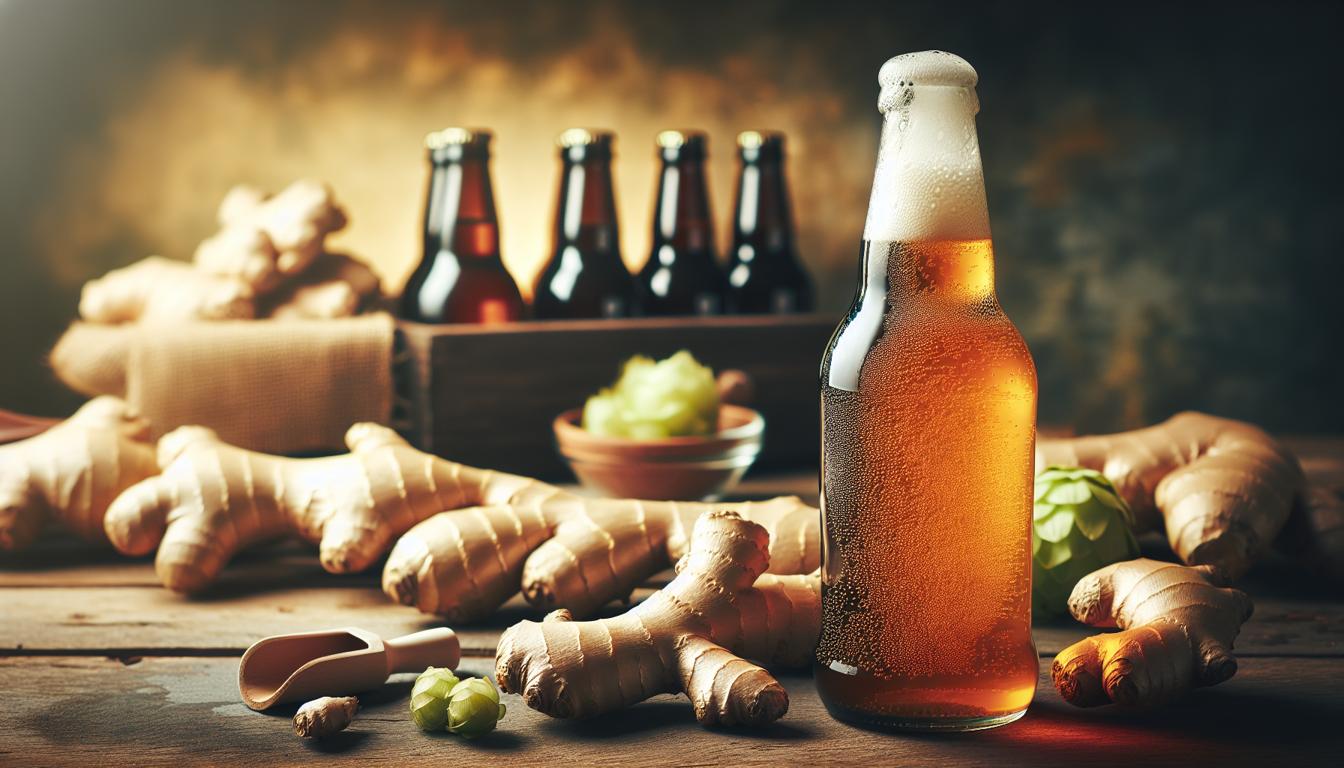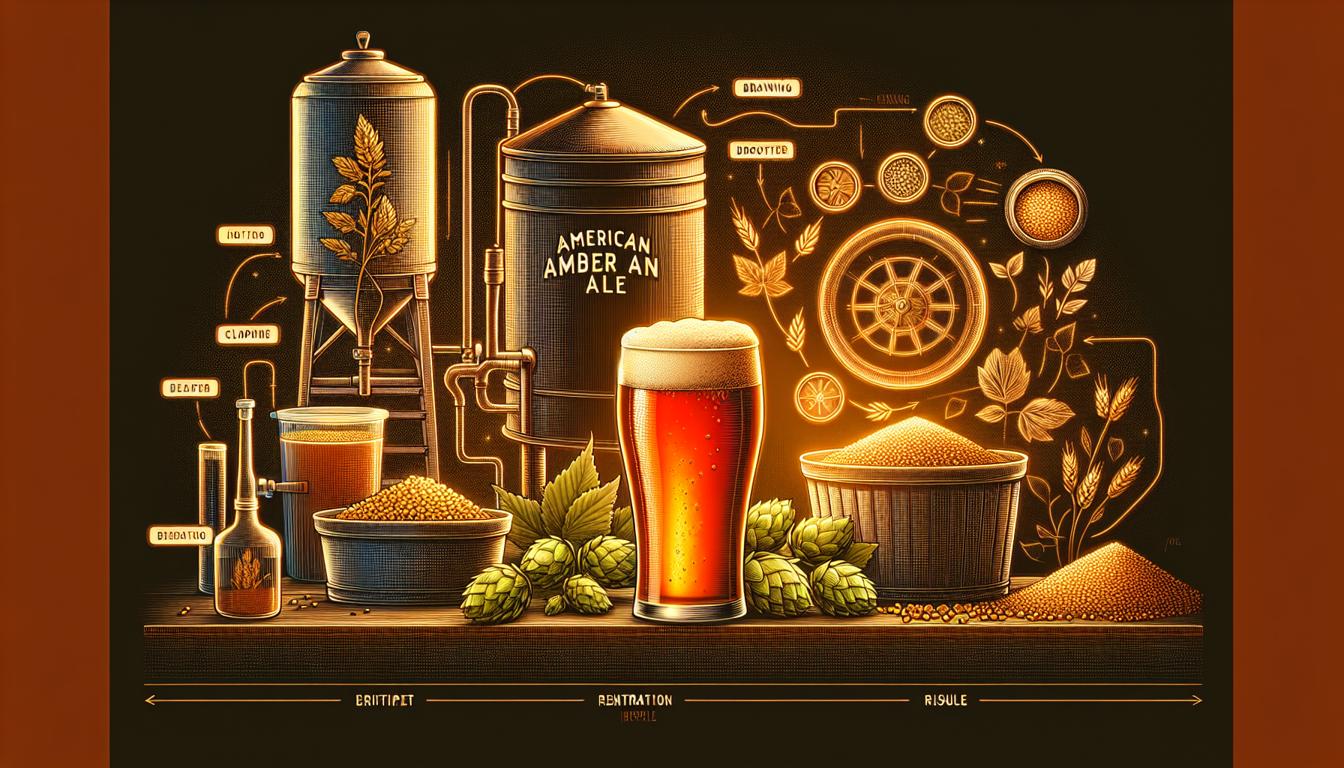As a professional cider brewer and microbiologist, I get asked all the time: how long does hard cider last? The answer depends on several factors which include brewing process, storage technique, packaging material and more.
In this article, we’ll take a look at these elements to determine exactly how long your hard cider will keep fresh and flavorful – and safe to drink!
The most important factor in determining the shelf life of your hard cider is the brewing process itself. Different types of yeast used during fermentation can affect the taste and texture of the beverage over time. Additionally, pasteurization or other treatments may be necessary for longer-term storage. We’ll discuss some steps that brewers can take to extend their ciders’ lifespan as much as possible.
Finally, it’s essential to consider proper storage techniques when you’re looking for maximum shelf life from your hard cider. Properly sealed bottles stored in cool temperatures will help ensure that your beverage stays fresher for longer periods than if left exposed to air or heat sources like sunlight. With careful consideration of each step discussed here, you can make sure your hard apple cider tastes great every single time!
Does Opened Hard Cider Go Bad?
Yes, opened hard cider does go bad eventually. Its shelf life depends on a few things: the alcohol content and fermentation method used, acidity levels, sulfite addition for preservation and carbonation levels.

Generally speaking, unopened hard cider can last up to two years if stored in optimal conditions like cool temperatures away from direct sunlight. Unpasteurized ciders will naturally have shorter shelf lives since they are not treated with preservatives that prevent oxidation and bacterial growth.
For pasteurized ciders, the pH level should be around 3-4 which helps preserve it longer but these types of ciders will still expire quicker than their unpasteurized counterparts due to their higher sugar content.
In terms of sulfites added during production, low amounts help maintain quality while high amounts may lead to an unpleasant taste over time or even spoilage. Lastly, when it comes to carbonation levels, lower is better as this keeps oxygen out of the bottle leading to slower spoilage rates. To summarize, unopened hard cider usually lasts up to two years whereas pasteurized versions typically only last several months before going bad. Moving forward…
How Long Does Hard Cider Last Once Opened?
When it comes to determining how long hard cider lasts once opened, there are several factors that come into play. The alcohol content of the cider will determine its shelf life, as well as the fermentation method used and whether sulfite was added during production. Additionally, the acidity and carbonation level of a particular cider can influence how long it will last once opened.

The alcohol content is one key factor in determining the lifespan of an open bottle of hard cider. If a cider has a higher ABV (alcohol by volume) rating, then it will be able to stay fresh for longer periods of time after opening than ciders with lower ABVs since they are less susceptible to oxidation or contamination from bacteria or wild yeast cultures. Generally speaking, ciders with ABVs below 6% should be consumed within 48 hours while those above 8% may remain safe for consumption up to 7 days post-opening.
The type of fermentation method used to produce the cider also plays an important role in its longevity when open. Traditional methods such as keeving or spontaneous fermentation create more complex flavors which make them more resistant to spoilage due to their higher levels of tannins and other compounds that act as natural preservatives. On the other hand, quicker fermentations like warm fermented ciders tend to have shorter lifespans even though they don’t require extended aging times before release.
Sulfites are another consideration when discussing how long hard cider can last after being opened. While some producers add sulfites prior to packaging which helps preserve flavor and prevent bacterial growth; not all do so this means that these types of ciders may only last two or three days at most if left unrefrigerated once opened making it important for consumers who enjoy these products regularly keep them chilled until ready to drink.
Finally, acidic levels and carbonation can affect how quickly a hard cider loses its quality after opening depending on where you store it and temperature fluctuations over time. For example, high acidity ciders stored in cool dark places may start tasting off sooner compared to low acidity varieties kept in warmer locations but both will begin deteriorating relatively soon regardless if not refrigerated properly between sips/servings! To extend shelf life further – moving forward – storing open bottles in fridge is recommended best practice for maintaining optimal flavor integrity over time .
How Long Is Open Hard Cider Good In Fridge?
When it comes to storing hard cider, there are several factors that can affect its shelf-life. The alcohol content of the cider, fermentation method used in production, levels of acidity and any sulfite additions or carbonation all play an important role in determining how long open hard cider is good for after being placed in a refrigerator.
Here’s a look at what you need to consider when trying to determine just how long your open bottle of hard cider will last:
- Alcohol Content: Generally speaking, ciders with higher alcohol contents have longer shelf lives than those with lower alcohol contents. This is because the ethanol produced during fermentation helps preserve the beverage as well as prevent spoilage from other microorganisms such as bacteria and fungi.
- Fermentation Method: Traditional methods of producing hard cider involve using wild yeasts which can help extend their shelf life due to the unique flavors they impart on the finished product. On the other hand, some modern methods rely solely on cultured yeast strains which tend not to provide quite as much protection against spoilage so these ciders may not last as long when stored in refrigerators.
- Acidity & Sulfite Addition: Cider made from apples typically has high levels of naturally occurring acids which also help protect against spoilage by acting as preservatives. Additionally, many commercial producers add sulfites (such as sulfur dioxide) during production process to further protect against bacterial growth and oxidation which could cause off-flavors over time; however this too can be detrimental if left in storage for extended periods of time since it can give off unpleasant aromas and tastes when exposed to oxygen.
The best way to ensure your hard cider stays fresh while stored in the fridge is by keeping track of its expiration date and only consuming it before then – even if it still looks and smells fine afterwards! With proper care and attention paid towards ensuring proper storage conditions like temperature control, airtight containers and avoiding direct light exposure; most types of open hard cider should remain stable for up to three months without notable changes in flavor or quality – though again this timeline can vary depending on various factors mentioned above including strength/alcohol content etc… By understanding more about these elements you’ll be able to better gauge how quickly you need consume your opened bottle(s) of hard cider before they go bad – giving you peace of mind knowing that each sip is safe yet still full of delicious flavor!
How Do You Know If Cider Has Gone Bad?
As a professional cider brewer and microbiologist, it is important to know how long hard cider will last. The shelf life of cider depends on several factors, most notably the alcohol content, fermentation method, acidity level, sulfite addition, and conservation compounds.
First, higher levels of alcohol can act as a preservative, helping to increase the longevity of the beverage. Higher gravity ciders are more likely to have better staying power than those with lower ABV percentages. In general, ciders that contain 7-9% ABV will usually last up to 1 year when stored in ideal conditions.

Second, different fermentation methods also impact shelf life. Cider produced using wild or spontaneous fermentations has shorter lifespans compared to those made using cultured yeast strains like Saccharomyces cerevisiae and Lactobacillus plantarum. Wild fermented ciders tend to be more acidic which helps them retain their flavor for longer periods of time; however they may become unpalatable sooner due to an increased potential for bacterial spoilage organisms entering the mix during production processes.
Thirdly, sulfur dioxide (SO2) is often added as a preservative compound during cider making. It works by inhibiting microbial growth and oxidation reactions within beverages; thus allowing them to maintain their freshness over extended storage times without compromising quality characteristics such as taste and aroma profiles. Sulfites should always be used in limited amounts depending on the type of cider being produced – too much can result in off-flavors or aromas from its breakdown products into volatile sulfur compounds (VSCs).
Finally, other conservation compounds such as sorbic acids may also be included in small quantities for additional protection against bacteria and fungal spores that could cause spoilage if left unchecked. These compounds are generally considered safe for consumption but should still be used sparingly so as not to affect the overall flavor profile of your finished product negatively. With these considerations taken into account, you can expect your hard ciders to stay fresh for many months – provided you store them correctly! Moving forward then let’s consider what happens when we open our bottles: Can you drink old opened cider?
Can You Drink Old Opened Cider?
Once opened, hard cider’s shelf-life is drastically reduced. Cider crafted with care can last around three months if stored correctly and kept away from heat; however, the quality of taste will diminish after about a week or two. It’s important for cider makers to understand the factors that determine the longevity of their beverage: alcoholic content, fermentation method, acidity level, sulfite addition (if any), and carbonation level.
To elaborate on these factors, let us take a closer look at each one in turn:
| Factor | Description | Effect on Longevity |
|---|---|---|
| Alcoholic Content | The higher the alcohol content – often over 6% ABV – the longer it will keep its flavor intact due to ethanol acting as a preservative. | Longer Shelf Life |
| Fermentation Method | Depending on how it was fermented affects how long it remains fresh once opened. Some methods are designed to increase shelf life but others do not produce such results. | Varies |
| Acidity | Highly acidic ciders tend to hold up better than those low in acidity since this helps preserve them against potential pathogens present in the environment. | Longer Shelf Life |
| Sulfite Addition | If sulfur dioxide has been added during production then this can help extend the shelf-life of your cider by killing off most of the microbes that would otherwise cause spoilage. | Longer Shelf Life |
| Carbonation Level | Bottled ciders typically have some amount of naturally occurring carbon dioxide which acts as an additional barrier against microbial growth and thus prolongs its freshness. | Longer Shelf Life |
Frequently Asked Questions
Does all Hard Cider Contain Sulfites?
I can confidently answer this query: yes, many commercial hard ciders do contain sulfite preservatives.
Sulfiting agents are typically added to ciders in order to limit the growth of spoilage microorganisms and maintain its flavor profile over time. Sulfites also act as antioxidants which help protect against oxidation reactions that could affect the taste and color of your beverage. Here’s a breakdown of how sulfites work in hard cider production:
- Preservation: The sulfur dioxide released by sulfites helps prevent microorganism activity and inhibit yeast growth, thereby protecting the cider from spoilage organisms.
- Flavor Protection: By limiting the amount of microbial activity present in fermented drinks, sulfites can preserve the original flavors while preventing off-aromas caused by other bacteria and yeasts from developing.
- Color Preservation: Oxidation due to oxygen exposure can cause discoloration in beverages such as applesauce juice or apple wine; however, with enough sulfite addition it prevents these effects from occurring.
When making hard cider at home, you should always be mindful of adding too much sulfite because it can lead to unwanted side effects like sharpness or astringency on top of potential headaches if consumed excessively. In fact, drinking high levels of sulphates have been linked with respiratory issues such as asthma attacks so it’s important to practice moderation when consuming alcoholic beverages containing them. Additionally, note that most commercial varieties will list their exact level of additions on their labels so you know what you’re getting into before taking your first sip!
In short then – though care must be taken not to use too much – hard cider definitely does contain sulfite preservatives which serve multiple purposes both during production and consumption including preservation, flavor protection and color preservation. With knowledge comes power; now armed with this information we can all enjoy our favorite ciders safely!
Are There Any Health Benefits To Drinking Hard Cider?
As a professional cider brewer and microbiologist, I’d like to answer the question of whether or not there are any health benefits to drinking hard cider. First off, let’s start by looking at some noteworthy facts about hard cider that might surprise you.
- Hard ciders contain probiotics which can help improve digestion as well as strengthen your immune system;
- The antioxidants in hard ciders may also reduce inflammation and slow down the aging process;
- Cider is naturally low in calories and carbs compared to other alcoholic beverages.
These properties make hard cider an ideal choice for those who want to enjoy a drink without compromising their health. In addition, research suggests that moderate consumption of hard cider could even have cardiovascular benefits due its high content of polyphenols, which are natural anti-inflammatory compounds found in apples.
Moreover, many people don’t realize that it’s possible to find non-alcoholic versions of traditional ciders on the market today. This opens up new possibilities for those who wish to reap the rewards of enjoying hard cider without having to deal with alcohol-related issues. Non-alcoholic ciders still maintain all their nutritional qualities such as vitamins A and B6, minerals like zinc and potassium, prebiotic fibers and antioxidants – just minus the booze!
It should be noted though that despite these potential advantages, consuming large amounts of any type of alcoholic beverage can lead to hazardous consequences including addiction and serious health problems if abused over time. Therefore while occasional moderation is recommended when considering one’s overall wellbeing, more extensive care must always be taken whenever indulging in this type of treat.
Conclusion
It’s no surprise that hard cider has become a popular drink in recent years. As a professional cider brewer and microbiologist, I can confidently say that the shelf life of hard cider varies depending on how it is stored and what type of ingredients are used during production. Generally speaking though, if kept refrigerated, most ciders will last for up to 6 months before they start to spoil or lose their flavor.




